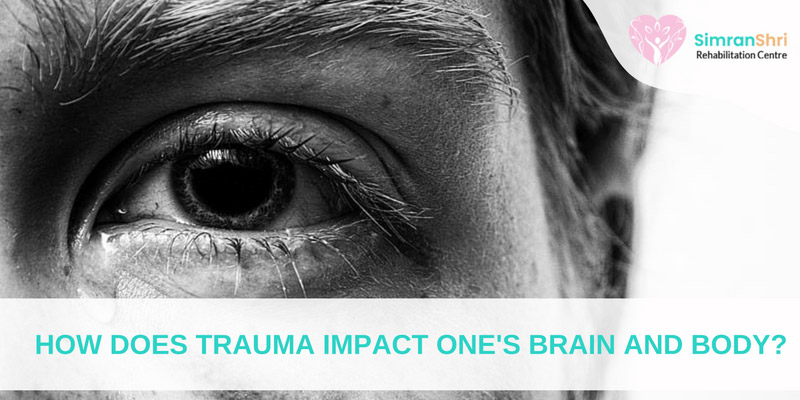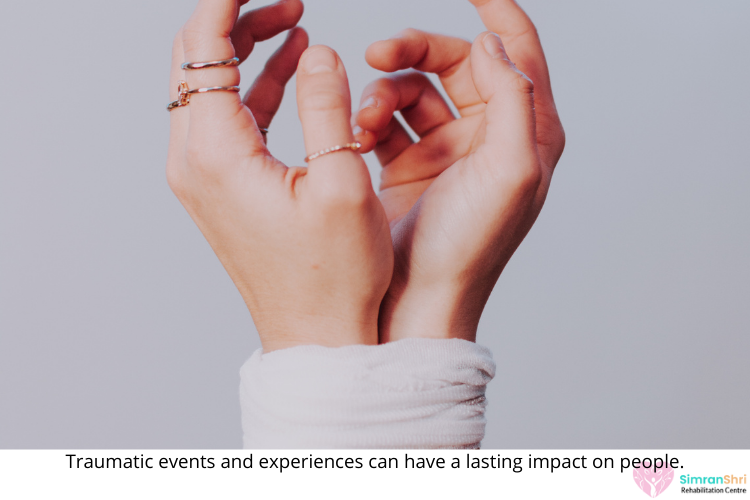

Traumatic events have the potential to alter the course of our life. Effects of Trauma can influence how we handle relationships, deal with day-to-day issues, think about life and produce physiological, emotional, and psychological discomfort. Many individuals have wondered if traumatic stress can modify the brain as a result of this i.eWhat are the effects of Trauma on the brain and body?
One of the main responsibilities of the brain, as complicated as it is, is to keep us all safe. As we move through life, our brain converts experiences into memories, allowing us to prioritise behaviours that have beneficial outcomes and avoid those that have bad consequences. When we are subjected to Trauma, our brain works nonstop to keep us all safe. The brain warns us of current risks based on unfavourable blueprints from the past, even after the threat or traumatic event has passed. As a result of this reaction, the brain behaves differently.
According to famous neuroscientist Dr Paul MacLean, the brain is divided into three parts: reptilian, mammalian, and neomammalian. According to the triune brain model, each portion of the brain has a distinct role.
● Our survival instincts are housed in the reptilian brain, which controls autonomic physiological activities like heart rate, respiration, hunger, and thirst.
● The mammalian brain aids in the processing of emotions such as joy and fear and the regulation of our attachment style.
● The neomammalian brain handles learning, Sensory processing, memory, decision-making, and problem-solving.
When we are traumatised, our brain switches off unnecessary processes and activates the mammalian brain and the sympathetic nervous system. The brain produces stress hormones and starts the flight or fight response to help us survive the Trauma.
The parasympathetic nervous system reawakens once the threat passes, and all three parts of the brain resume normal activity. Traumatic stress can obstruct this process, locking the brain in "survival mode," according to research.
Traumatic stress can alter the structure and delicate chemical balance of the brain. Depending on the type of complex Trauma we're dealing with, the effects of Trauma, which might affect how we function, can be modest or severe. Some people, for example, need a post-traumatic stress disorder treatment, while others suffer from anxiety, act recklessly, and have trouble managing their emotions. All of these changes are the effects of Trauma on the brain.

Amygdala activation is another effect of Trauma on the brain and body. The amygdala is a region in the brain that helps us process emotions. The amygdala also aids in the regulation of our fear responses and the formation of emotional memories. The amygdala becomes overactive as a result of traumatic stress. Our terror responses become more profound as a result of this. This means that painful memories can manifest as nightmares and flashbacks. This can also imply that our emotional thoughts become so invasive that they keep us awake at night.
An overactive amygdala can also make it difficult for our brain to discriminate between past and current threats. Our amygdala reacts in the same manner as it would if we were presented with a terrible incident or experience for the first time when we are reminded of it. This keeps us on a constant high alert and can make us feel anxious all of the time. The effects of an overactive amygdala vary from person to person. Still, if an individual does not learn about Coping With PTSD Anxiety, they almost always lead us to fear stressors more than others.
Additionally, an overactive amygdala might result in:
● An inability to calm down
● Heightened fear
● Chronic stress
● Increased irritation
● Insomnia
Hippocampus Shrinks due to Trauma
The hippocampus, the portion of the brain that stores and retrieves memories and distinguishes between past and current experiences, is also affected by traumatic stress. In studies, Trauma and dealing with extreme stress were found to shrink the capacity of the hippocampus. It can be difficult to distinguish the difference between the past and the present due to this. Consequently, even settings that remind us of traumatic occurrences might cause us to become fearful, stressed, or panicked. The effect of Childhood trauma is such that it can keep old unpleasant memories at the forefront of our minds, causing us to live in a permanent state of hypervigilance and heightened emotional reactivity rather than allowing the brain to form and store new memories.
The prefrontal cortex aids us in reasoning, emotion regulation and interpretation, impulse control, and problem-solving. Traumatic stress has been shown to reduce prefrontal brain functionality in studies. This might make it difficult to learn new things, control our emotions, and solve difficulties. In other words, acute stress can make logical reasoning harder, making us feel helpless to regulate our dread.
Unresolved Traumatic stress or effects of childhood trauma alters the brain so that everyday life becomes difficult. High-stress hormone levels, in combination with a hyperactive amygdala, a smaller hippocampus, and less active prefrontal cortex, can result in:
● Anxiety
● Irritability
● Difficulty learning new things
● Insomnia
● Poor concentration
● Flashbacks
● Panic attacks
● Nightmares
● Memory issues
● Trouble making decisions
Fatigue is a side effect of Trauma. We can feel emotionally, physically, and psychologically drained when the brain expends a lot of energy attempting to protect us from perceived threats. Daily obligations and self-care activities can feel like a chore while feeling this way.
Relationships can be difficult when you have a constantly vigilant brain. We may not be able to adequately gather up about how others feel and think if we are continually feeling threatened, paranoid, or fearful.
We at SimranShri Rehabilitation Centre recognise the effects of Trauma on the brain and body. Traumatic stress can make you hyper-reactive, agitated, immensely anxious, impulsive, and unreasonable. However, you are not obligated to continue living in this manner. Our treatment methods can aid in the recovery of the brain following acute stress. To learn more, please get in touch with us immediately. We wish to assist you in living the happy life you deserve.
Tags: effects of childhood trauma, effects of Trauma, effects of Trauma on the brain, effects of Trauma on the brain and body